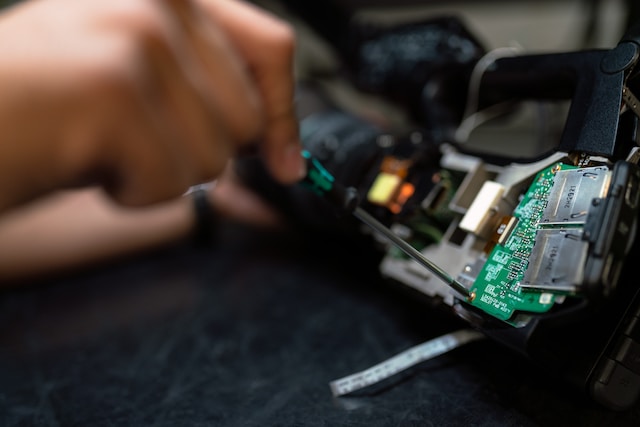Unraveling the Myths: Unveiling the Truth About Electrical Panel Testing
Introduction
Electrical panels play a crucial role in ensuring the safety and functionality of a building’s electrical system. However, there are several myths and misconceptions surrounding electrical panel testing that can lead to potential risks and hazards. In this article, we will unravel these myths and provide you with the truth about electrical panel testing.
What is an Electrical Panel?
An electrical panel, also known as a breaker box or distribution board, is a central hub that controls and distributes electricity throughout a building. It contains circuit breakers or fuses that protect the electrical circuits from overloading and short circuits. The electrical panel is responsible for regulating the flow of electricity and ensuring that it reaches different areas of the building safely.
The Importance of Electrical Panel Testing
Regular electrical panel testing is essential for maintaining a safe and reliable electrical system. It helps identify potential issues such as faulty wiring, loose connections, or outdated components that may pose safety hazards. By conducting thorough testing, you can mitigate the risk of electrical fires, electrocutions, and equipment failures.
Common Myths About Electrical Panel Testing
Myth 1: “Electrical panel testing is unnecessary.”
Many people believe that as long as the lights are on and the power is working, there is no need for electrical panel testing. However, this is a dangerous misconception. Electrical panels can develop hidden faults over time, such as loose connections or worn-out components, which may not be immediately apparent. Testing is crucial to identify these issues before they escalate into serious problems.
Myth 2: “Testing electrical panels is too expensive.”
Another common myth is that electrical panel testing is costly and not worth the investment. While there is a cost associated with professional testing services, it is significantly lower than the potential costs of an electrical fire or system failure caused by undetected issues. Investing in regular panel testing is a proactive measure that can save you money in the long run.
Myth 3: “I can test my electrical panel myself.”
Some individuals may believe that they have the knowledge and skills to test their electrical panels without professional assistance. However, electrical panel testing requires specialized equipment and expertise. Without proper training, you risk misinterpreting the results or overlooking critical issues. It is always recommended to hire a qualified professional for accurate and reliable testing.
Debunking the Myths
Myth 1: “Electrical panel testing is unnecessary.”
Contrary to the myth, electrical panel testing is vital for maintaining electrical safety. Faulty wiring, loose connections, and outdated components can lead to electrical hazards such as electrical shocks, fires, or damage to electrical devices. Regular testing ensures that these issues are detected early on and necessary repairs or replacements are made promptly.
Myth 2: “Testing electrical panels is too expensive.”
While there is a cost associated with electrical panel testing, it is a small price to pay for the safety and reliability of your electrical system. Ignoring testing can result in costly damages, including property loss and personal injury. By investing in professional testing services, you are taking proactive steps to prevent potential hazards and save money in the long term.
Myth 3: “I can test my electrical panel myself.”
Testing an electrical panel requires specialized knowledge, tools, and experience. Professionals are trained to identify potential hazards, assess the condition of the panel, and perform necessary repairs or replacements. Attempting to test the panel yourself without proper training can lead to inaccurate results, false sense of security, and increased risk of electrical accidents.
The Benefits of Professional Electrical Panel Testing
Hiring a professional electrical panel testing service offers several benefits:
- Expertise: Professionals have the knowledge and experience to accurately assess the condition of your electrical panel.
- Safety: They follow strict safety protocols during testing to minimize the risk of accidents or injuries.
- Comprehensive Testing: Professionals conduct thorough inspections and tests, ensuring all potential issues are identified.
- Reliable Results: Professionals provide accurate results and recommendations based on their findings.
- Compliance: Regular testing helps you comply with safety regulations and insurance requirements.
How Often Should Electrical Panels be Tested?
The frequency of electrical panel testing depends on various factors, including the age of the building, the type of electrical system, and the local regulations. In general, it is recommended to have your electrical panel tested at least once every five years. However, if you notice any signs of electrical problems, such as flickering lights or tripping circuit breakers, it is crucial to have the panel tested immediately.
Signs that Your Electrical Panel Needs Testing
There are several signs that indicate your electrical panel requires testing:
- Frequent circuit breaker tripping.
- Flickering or dimming lights.
- Burning smell or unusual odors near the panel.
- Buzzing or crackling sounds coming from the panel.
- Warm or hot electrical panel.
If you notice any of these signs, it is essential to contact a professional electrical panel testing service to evaluate the condition of your panel.
The Electrical Panel Testing Process
During the electrical panel testing process, a qualified professional will perform the following steps:
- Visual Inspection: The professional will examine the panel for any visible signs of damage, corrosion, or loose connections.
- Load Testing: They will test the circuit breakers’ response to different load conditions to ensure they function correctly.
- Insulation Testing: Insulation resistance testing is conducted to identify any insulation breakdown or leakage.
- Ground Fault Testing: Ground fault circuit interrupter (GFCI) testing is performed to verify the panel’s ground fault protection.
- Voltage Testing: Voltage measurements are taken to ensure the panel provides the correct voltage levels to different circuits.
Based on the test results, the professional will provide a detailed report, outlining any issues found and recommendations for necessary repairs or upgrades.
Choosing a Qualified Electrical Panel Testing Service Provider
When selecting a professional electrical panel testing service, consider the following factors:
- Experience: Choose a provider with extensive experience in electrical panel testing.
- Certifications: Ensure the professionals are certified and trained in electrical safety standards.
- Reputation: Read reviews and testimonials from previous clients to gauge their reputation.
- Insurance: Verify that the provider carries liability insurance to protect against any damages or accidents.
- Cost: Compare the pricing of different service providers while considering the quality of their services.




